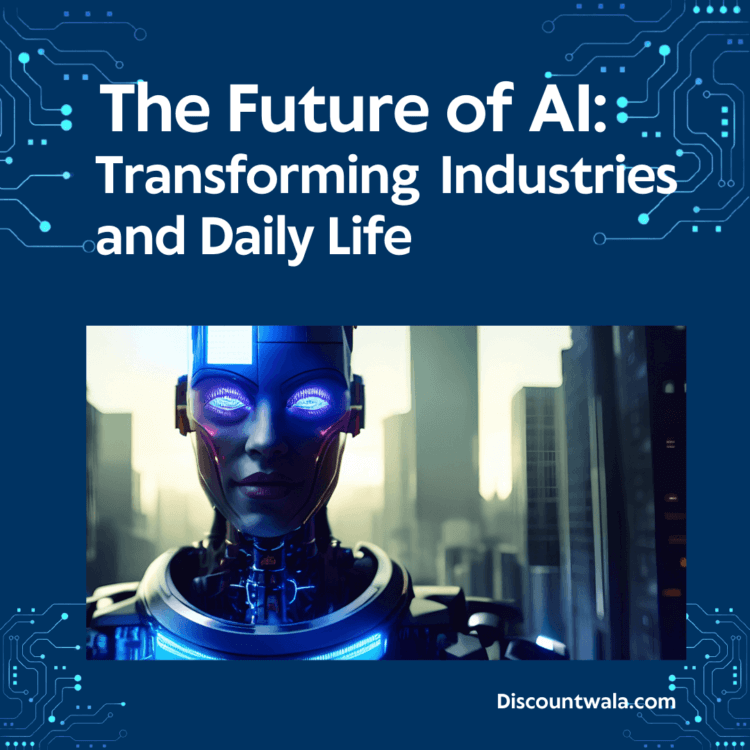The future of AI holds tremendous promise in transforming industries and daily life in various ways. AI, or artificial intelligence, refers to the development of computer systems that can perform tasks typically requiring human intelligence, such as learning, reasoning, problem-solving, and understanding natural language. Here are some key areas where AI is expected to have a significant impact:
1. Healthcare
AI is poised to revolutionize healthcare by enhancing diagnostics, drug discovery, and treatment planning. Machine learning algorithms can analyze large volumes of medical data, including images, to detect diseases earlier and with higher accuracy. Additionally, AI-powered robots and chatbots can assist with patient care and monitoring.
2. Autonomous Vehicles
Self-driving cars and autonomous transportation systems are being developed with AI at their core. These vehicles have the potential to reduce accidents, decrease traffic congestion, and make transportation more efficient.
3. Manufacturing
AI-driven robots and automation are improving efficiency and precision in manufacturing processes. This leads to increased production capacity, higher product quality, and reduced labor costs.
4. Finance
AI is transforming the financial industry by enabling more accurate risk assessment, fraud detection, and algorithmic trading. Chatbots and virtual assistants are also being used in customer service and financial advising.
5. Retail
AI is changing the way consumers shop. Personalized recommendations, inventory management, and cashier-less stores are some examples of AI applications in retail.
6. Education
AI-powered learning platforms can provide personalized education experiences. These systems can adapt to individual student needs and improve learning outcomes.
7. Entertainment
AI is used to create content recommendations for streaming services, optimize video game experiences, and even generate music and art.
8. Energy
AI helps optimize energy consumption in smart grids, improve the efficiency of renewable energy sources, and predict equipment failures in power plants, reducing downtime
9. Agriculture
AI is being used for precision farming, which involves data-driven decision-making for planting, harvesting, and pest control. This leads to higher crop yields and reduced environmental impact.
10. Security
AI plays a vital role in cybersecurity, helping detect and prevent cyber threats. Facial recognition and biometric systems are also used for access control and identity verification.
11. Language Translation
AI-powered translation services are breaking down language barriers, making global communication more accessible.
12. Environmental Conservation
AI can analyze data from sensors and satellites to monitor and address environmental issues, such as deforestation, climate change, and wildlife conservation.
13. Space Exploration
AI is used in autonomous spacecraft and rovers, allowing for more efficient and adaptable exploration of other planets and celestial bodies.
14. Personal Assistants
Virtual personal assistants like Siri, Alexa, and Google Assistant continue to evolve, making it easier for individuals to interact with technology and manage their daily lives.
While the future of AI is filled with opportunities, it also presents challenges related to ethics, privacy, job displacement, and bias in algorithms. Addressing these challenges will be essential for harnessing the full potential of AI in a responsible and equitable manner. As AI continues to advance, it will likely become an even more integral part of industries and daily life, reshaping the way we work, live, and interact with the world around us.










No Comments
Leave Comment